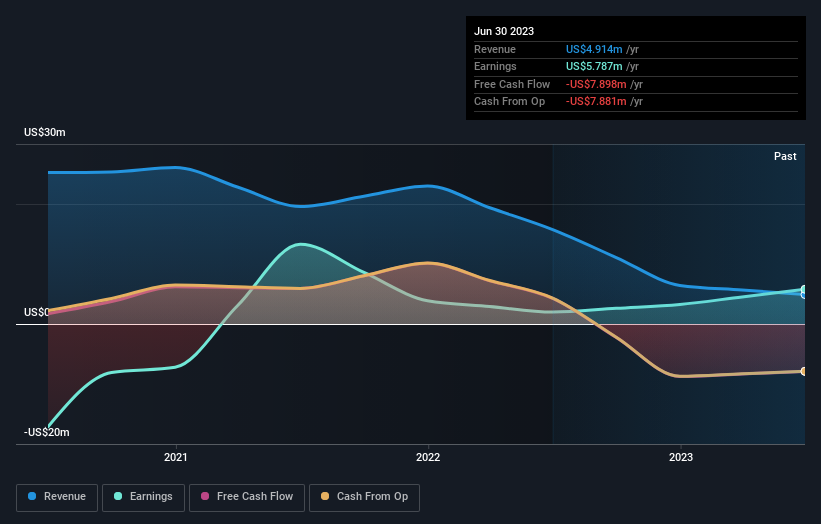Owning 59% in Chuan Hup Holdings Limited (SGX:C33) means that insiders are heavily invested in the company's future
Key Insights
Chuan Hup Holdings' significant insider ownership suggests inherent interests in company's expansion
Kwee Chim Peh owns 52% of the company
Ownership research, combined with past performance data can help provide a good understanding of opportunities in a stock
To get a sense of who is truly in control of Chuan Hup Holdings Limited (SGX:C33), it is important to understand the ownership structure of the business. With 59% stake, individual insiders possess the maximum shares in the company. That is, the group stands to benefit the most if the stock rises (or lose the most if there is a downturn).
So it follows, every decision made by insiders of Chuan Hup Holdings regarding the company's future would be crucial to them.
In the chart below, we zoom in on the different ownership groups of Chuan Hup Holdings.
See our latest analysis for Chuan Hup Holdings
What Does The Institutional Ownership Tell Us About Chuan Hup Holdings?
Institutions typically measure themselves against a benchmark when reporting to their own investors, so they often become more enthusiastic about a stock once it's included in a major index. We would expect most companies to have some institutions on the register, especially if they are growing.
Since institutions own only a small portion of Chuan Hup Holdings, many may not have spent much time considering the stock. But it's clear that some have; and they liked it enough to buy in. So if the company itself can improve over time, we may well see more institutional buyers in the future. We sometimes see a rising share price when a few big institutions want to buy a certain stock at the same time. The history of earnings and revenue, which you can see below, could be helpful in considering if more institutional investors will want the stock. Of course, there are plenty of other factors to consider, too.
We note that hedge funds don't have a meaningful investment in Chuan Hup Holdings. Because actions speak louder than words, we consider it a good sign when insiders own a significant stake in a company. In Chuan Hup Holdings' case, its Senior Key Executive, Kwee Chim Peh, is the largest shareholder, holding 52% of shares outstanding. For context, the second largest shareholder holds about 4.1% of the shares outstanding, followed by an ownership of 1.1% by the third-largest shareholder. Interestingly, the second-largest shareholder, Siong Woon Peh is also Chief Executive Officer, again, pointing towards strong insider ownership amongst the company's top shareholders.
Researching institutional ownership is a good way to gauge and filter a stock's expected performance. The same can be achieved by studying analyst sentiments. We're not picking up on any analyst coverage of the stock at the moment, so the company is unlikely to be widely held.
Insider Ownership Of Chuan Hup Holdings
The definition of an insider can differ slightly between different countries, but members of the board of directors always count. The company management answer to the board and the latter should represent the interests of shareholders. Notably, sometimes top-level managers are on the board themselves.
I generally consider insider ownership to be a good thing. However, on some occasions it makes it more difficult for other shareholders to hold the board accountable for decisions.
Our information suggests that insiders own more than half of Chuan Hup Holdings Limited. This gives them effective control of the company. Given it has a market cap of S$189m, that means they have S$111m worth of shares. Most would argue this is a positive, showing strong alignment with shareholders. You can click here to see if those insiders have been buying or selling.
General Public Ownership
The general public, who are usually individual investors, hold a 38% stake in Chuan Hup Holdings. This size of ownership, while considerable, may not be enough to change company policy if the decision is not in sync with other large shareholders.
Next Steps:
I find it very interesting to look at who exactly owns a company. But to truly gain insight, we need to consider other information, too. Like risks, for instance. Every company has them, and we've spotted 3 warning signs for Chuan Hup Holdings (of which 1 can't be ignored!) you should know about.
Of course this may not be the best stock to buy. So take a peek at this free free list of interesting companies.
NB: Figures in this article are calculated using data from the last twelve months, which refer to the 12-month period ending on the last date of the month the financial statement is dated. This may not be consistent with full year annual report figures.
Have feedback on this article? Concerned about the content? Get in touch with us directly. Alternatively, email editorial-team (at) simplywallst.com.
This article by Simply Wall St is general in nature. We provide commentary based on historical data and analyst forecasts only using an unbiased methodology and our articles are not intended to be financial advice. It does not constitute a recommendation to buy or sell any stock, and does not take account of your objectives, or your financial situation. We aim to bring you long-term focused analysis driven by fundamental data. Note that our analysis may not factor in the latest price-sensitive company announcements or qualitative material. Simply Wall St has no position in any stocks mentioned.


